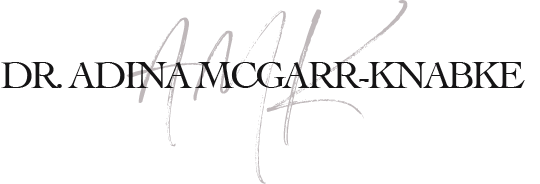I provide therapy to patients who are dealing with eating disorders such as Anorexia, Bulimia, and Binge Eating Disorder, as well as disordered eating styles that do not meet criteria for an eating disorder. These are serious conditions that wreak havoc on patients by affecting their sense of self, their health, their relationships, and their well being. All of which ultimately diminish one’s ability to participate fully in daily activities.
After a general medical condition has been ruled out, I work with patients in therapy to determine the underlying psychological and emotional causes for their condition. In addition to the underlying factors contributing to one’s eating disorder, they also serve as powerful coping mechanisms. We associate food with memories, use it to make ourselves feel happy when we are sad, rely on it as a way of showing love for our families, and sometimes even punish ourselves with it. My goal is to help patients understand why they interact with food the way they do, so that we can work together to build a life that doesn’t revolve around food.
Understanding Food Addiction
It can be helpful to understand why food is so addictive in the first place. Research has shown that the same pleasure and reward centers of the brain that are triggered by addictive drugs like heroin and cocaine are also activated by food.
Highly palatable foods that are rich in sugar, fat, and salt trigger the release of brain chemicals, like dopamine, that just make you feel good. For some individuals, the neurochemical structure of their brains may predispose them to either being more sensitive to the chemicals released when eating highly palatable foods or less responsive, meaning it takes eating more of the food to elicit the same pleasure response. Over time, this can override normal feelings of satisfaction, induce cravings, and compel you to eat, even if you’re not hungry. Tolerance can build and despite more food being consumed, the same pleasurable effect is harder to achieve. Once food addiction occurs, eating becomes the primary source of pleasure and reward and the individual is less motivated to engage in other activities that were once appealing.
Signs of Food Addiction
It may be difficult to admit to yourself that you have a food addiction, and it can also be hard to identify in others, as there is a significant amount of shame and secrecy around food addiction. Below are some questions that may help identify in an addiction is present.
- Does it often feel like you are eating more than you planned, especially when it comes to certain foods?
- Do you feel the need to continue eating those foods, even though you are not hungry any longer?
- How often do you eat so much that you become ill?
- If a certain type of food is not available, what actions do you take?
- Is eating interfering with your ability to work or interact with others?
- Are you embarrassed by how much you eat around others?
- Do you eat in secrecy?
- If you try to cut down, do you experience anxiety, agitation, or any other physical symptoms?
- Have your eating habits caused you to experience depression, self-hatred, or guilt?
- Does it feel like to need to eat more and more just to feel any pleasure at all?
Food addiction may not look the same for everyone. These questions don’t necessarily indicate that you have or don’t have an addiction, but they can be helpful guidelines. If you think there is cause for concern it is always best to check with a medical doctor and a mental health professional.
Getting Help for a Food Addiction
Once a person becomes addicted to food, it is difficult to stop, despite any rational thinking or negative consequences that occur. It may require medical care, treatment for depression, nutritional counseling and physical training combined. Here are a few organizations which can provide further insights into the causes, symptoms, and treatments for food addictions:
- National Association of Anorexia Nervosa and Associated Disorders (ANAD): This non-profit organization has been dedicated to the prevention and alleviation of eating disorders since 1976. ANAD advocates for the development of healthy attitudes, bodies, and behaviors. The organization also promotes eating disorder awareness, prevention and recovery through supporting, educating, and connecting individuals, families and professionals.
- National Eating Disorders Association (NEDA): NEDA was formed in 2001 through the merger of two groups – Eating Disorders Awareness & Prevention (EDAP) and the American Anorexia Bulimia Association (AABA). NEDA believes we can confront eating disorders with increased awareness, early intervention and improved access to treatment. The non-profit provides programs and services to give families the support they need to find answers for these life-threatening illnesses.
- The Something Fishy Website on Eating Disorders: This website has been raising awareness and providing support to people with eating disorders and their loved ones since 1995. They are determined to remind every sufferer that they are not alone, and that complete recovery is possible.
If you or a loved one is affected by a food addiction or an eating disorder, contact my office immediately to set up a session, and let me help you find a path to a better life.
Dr. Adina McGarr-Knabke

